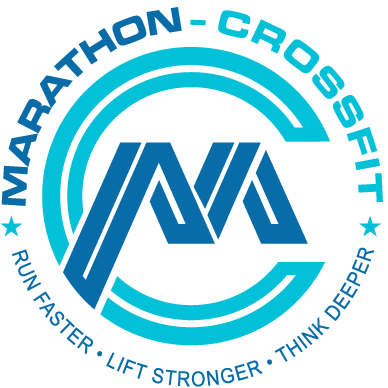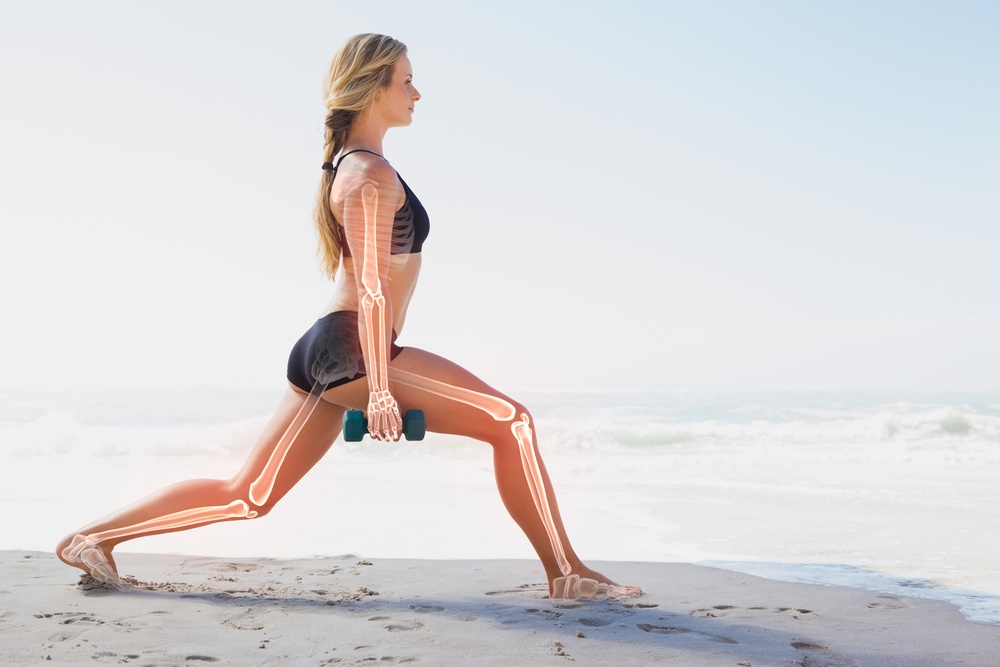17 ways to reboot your body for fitness
These are the best tips from the book "30 ways to reboot your body". It is written by Ben Green who is a former bodybuilder, triathlete, and coach. It is an overview of digestive health, light exercise, and solid routines,
Reduce stress
Reduce your stress levels to lower your level of cortisol. To reduce the stress you can start getting up earlier. Getting up an hour earlier and going to bed earlier will make you feel like you are in control. You can use the hour you gained for meditating or exercising.
Exercising early in the morning will also mean less stress in the gym for you. You will have more space. There will be fewer people staring at you. In the end, you will also be less distracted by others. Meditating will keep your mind at ease. You can use an app like headspace to guide yourself through the process. This will improve focus and productivity. After you have meditated you can plan your day.
Using a journal will help you to stay focused and feel like you accomplished something in the day. For this, you can use a journal like the version from best self.
These are the easy pieces you can control. Once this is in place make a list of all the stressors in your life. Prioritise them from least to most impact on your stress levels by time of exposure.
Your boss is not around you all the time but might stress you out every time he or she is. Minimise the time with the people who stress you out the most the quickest. Maximise the time with people who bring you the most joy in the shortest amount of time.
Exercise less
If exercise feels like a chore to you do less of it. Physical activity should put more into you than take from you. Otherwise, it loses its usefulness.
Exercise is good for you. Exhausting yourself is not. Be realistic about your current level of fitness and goals. Break your goals into achievable daily milestones. After your session, you should feel like "yes I am on plan and challenged myself. This was a good Session". Avoid feeling like a steam train rolled over you.
This can also mean to keep days free from exercise if you are already active. Keep the weekends free to spend time with family and avoid sports unless you have a competition or race.
Reduce processed foods
Do you eat a lot of fast food? Do you opt for the oven pizza instead of making something from scratch? Do all your vegetables come out of cans?
If so try to get more food from unprocessed sources. Check out the local market one to two times a week. A little stroll will be refreshing and good for your relationship. Get a nice cheese or ripe fruit. Try something new like passion fruit.
Another source of processed foods with hidden sugar is yogurts. They are positioned and marketed as being healthy. Be careful as they often contain more sugar then the branding would suggest.
Reduce alcohol
This one is obvious and still, a lot of people do not follow through. Alcohol consumption is widespread and an easy fix to feel healthier and agiler.
My judo coach in high school said that one binge is the equal of flushing one weeks worth of training the toilet. When you are drunk you usually do things which hurt your relationships and health. Reduce it to a glass of wine or one bottle of beer with friends.
Reduce caffeinated drinks
How much coffee or tea do you drink a day? More than two? A whole can? Too much coffee can affect your performance negatively. Consume less to boost your fitness.
Caffeine can stay in your system for four to six hours. There it is easy to overdo and you can feel sick, panicky and anxious. All signs of a caffeine overdose. Although caffeine is legal it is a stimulant drug. Coffe affects the central nervous system. It is considered a stimulant of the methylxanthine class of psychoactive drugs.
Caffeine affects everybody differently and there are no conclusive studies yet. It is worth a try to do without to see whether it makes you feel better. Caffeine can be found in:
- Some soft drinks (including Pepsi, Coke, Mountain Dew)
- Some teas (including black, white, green)
- Chocolate, including hot chocolate drinks and dark chocolate
- Coffee and all coffee-containing drinks
- Some over-the-counter stimulants like NoDoz, Vivarin, Caffedrine, and others
- Some weight loss drugs or performance-enhancing “herbs”
Three or more cups can negatively impact hormonal levels. It can also increase symptoms of PMS. A moderate amount of coffee intake is 500 milligrams of caffeine per day. This drops to 200 milligrams when you are pregnant.
Reduce unnecessary medication
How much medication do you currently take? When was the last time you talked to your doctor if it is necessary? How many medicaments do you take without consulting a Doctor?
Antibiotics have helped millions of people to live longer, healthier lives. So much so that nowadays people and even doctors are quick to prescribe them for any sign of sickness. This overuse of antibiotics on humans creates up to 20 billion dollars of additional health costs.
If you use nasal sprays against congestion they can become addictive. In severe cases, this can damage your aerial ways and reduce your fitness. With overuse, you can get trapped in a vicious circle. The nasal spray will cause the irritation for which you then again use the nasal spray to fix it. Use nasal spray not more than three to four times a day. Also only use it for a limited amount of time.
Between a third and a half of all Americans have insomnia and complain of poor sleep. Maybe you are one of them. Sleeping pills can be a band-aid for your poor sleep. It is important that you dig deeper into the underlying challenges. Otherwise, addiction can be a consequence. Sleeping pills known as benzodiazepines can cause problems with your memory and attention. Not ideal when you want to stay focused to perform at your best.
Do you use painkillers more than 2 to 3 times a week? Are you under strict instructions to do so? If not, try to consume less. Once you exceed this intake the painkillers themselves can become a source of headaches. Again, just as with nose spray, you might be in a vicious cycle which only can get worse.
It is not always necessary to fight coughs and sneezes with medication. Preventive measures can go far. You save the money and get healthier in the process.
Use hot and cold showers to build up your immune system. 10 seconds warm followed by 20 seconds cold for four times. The facilities in the gym are ideal for this. The shower at home also works and is usually a bit small.
Regular brisk walks in a park also help to build your immune system further. Fresh air will work wonders to help you feel fresher. Rest when you feel like a cold is coming on. Staying at home in bed to sweat it out is better for you than dragging it out. Get yourself some tea, a hot water bottle, and lemons.
Stop exercising immediately when you hurt yourself in a bad way. The more experience you have with training the better you will know when it is time to take a rest. Especially fit people have a tendency to push through minor injuries. This tends to make things worse. Stop, regenerate and come back another time to rock even harder.
Get a health check
From time to time your car needs a checkup. So do you. A thorough look under the hood can do wonders for you. Get your blood checked for cortisol, insulin and white blood cells. If anything is off, try to get it fixed.
You might have developed an allergy to certain foods. This can keep you from performing best. You could have had not enough vitamin D. There are so many aspects.
Your first port of call is your general practitioner. You might also consider a specialized help depending on your budget and needs.
Check your Heart Rate
Heart rate monitoring at home is useful for cardiovascular training. Your heart rate will reflect your weight and fitness. Determine the Intensity of your workout accordingly.
Most monitors for home use are not precise. This should not discourage you from using them. It is more important that you know where your green, yellow and red heart rate zones are. You can do some calculations to start your heart rate training. There are seven different heart rates you can calculate.
- Maximum heart rate
- Resting heart rate
- Heart rate Reserve
- Heart range rate
- Aerobic training heart rate
- Aerobic-Anaerobic heart rate
- Anaerobic training rate
Calculating your maximum Heart rate is as easy as counting to three. Just subtract your age from 220 and you are done. This technique does not allow for fitness and genetical differences. Allow for an error range of 10 - 20 beats per minute up or down. To determine your resting heart rate take your pulse before you get out of bed in the morning. This is where a Fitbit might come in handy.
Your Heart rate reserve is what you have left over after you subtract your resting heart rate from your maximum heart rate. Your aerobic training heart rate will be around 50 to 75% of your heart rate reserve. This is where you burn the most fat and should be the heart rate you aim for while training.
Your aerobic training heart rate is higher than the one for fat burn. If your aim is to become a better long distance runner work between 75 to 85 percent of your heart rate reserve.
Your aerobic-anaerobic threshold lies between 85 and 90 percent of your heart rate reserve. This is what you are going for when you want to improve your speed and performance. Especially good for interval training. Be careful and only stay in this area for limited amounts of time.
Your anaerobic training heart range lies between 90 to 100 beats per minute. This is the area where your lungs burn.
Switch to healthy fats
Fat consists of chains of carbon atoms surrounded by hydrogen atoms. These atoms connect with electron bonds. There are two types of bonds, single and double.
Scientists call a fat only made of single bonds saturated. If the fat has only one or more double bonds they call it unsaturated. Most natural fats are saturated. Examples are butter, cheese, and meat. Vegetable oils are unsaturated fats. Most unsaturated fats are made in industrial processes.
If you want to boost your fitness get more saturated and less unsaturated fats in your diet.
Reduce carbs
Carbohydrates are in potatoes, rice, and noodles. You probably get most of them through these sources.
Eating too many carbs can negatively affect your ability to control your blood sugar levels. A lot of carbs increase your risk of developing type 2 diabetes. This was stated by the Harvard School of Public health.
An easy way of reducing your carbs is to swap them for greens.
Set up a pull bar
An easy and pretty cheap way to stay fit is a pull-up bar. Whenever you have time you can get 3 - 5 pull-ups in quickly.
If you can not do pull-ups yet, try push-ups. If you can not do push-ups try wall push-ups or push-ups on your knees.
Strength training benefits your health by releasing growth hormones. Especially when you get older you will have lesser natural levels to help you stay healthy.
A very effective method to improve your pull up performance is greasing the groove. With greasing the groove you train just as long as you feel performance is decreasing. Then you stop to go back at it somewhere later in the day and apply the same process.
Avoid sitting down for long
This is a simple hack but effective hack. Standing burns more calories and makes you fitter than standing.
Get an adjustable table at work and try to stand more. Offer your seat to someone else on your commute. Book the standing tickets for your favorite sports team.
You can come up with all kinds of ways to stand more and be less sedentary. This will make you fitter.
Shower less
Another aspect of fitness can be that you shower too much. Yes you read that right. Too much showering can also have a negative impact on your skin and overall health. This infographic from recommendedthings.com outlines more detail for you.

Try hypoxia
Hypoxia is the technique of depriving you of oxygen for short periods of time. This will help to bring your resting heart rate down. It also helps with getting more out of each breath.
You breathe 17.000 to 30.000 times a day. Anything you do to make this more effective will have a positive impact on your fitness.
High intensity
High-intensity interval training or short HIIT has been very popular recently. You have probably already known it under the term but interval training. HIIT just sounds cooler.
Still, HIIT works. Do 20 seconds of intense exercise followed by ten seconds of rest for twenty minutes. In the 20 seconds do as many repetitions as you possibly can.
Sleep
Sleep is a big topic in health and fitness. Most recommendations are that you have seven to eight hours sleep per night.
The healthier you are, the more you can afford to sleep less. I currently function on 5 hours on weekdays and 8 hours on weekends.
You can read more about sleep in this interesting article of the national sleep foundation.
Eat calorie-rich meals
Eat less often, but more. Having calorie-rich meals can send your body into overdrive. This keeps you going for longer.
Eating lesser, bigger meals also reduces the risk of snacking. Snacks are the bane of every day as they tend to be unhealthy fast food.
Conclusion
These life hacks are simple to put in place. There is no excuse for you to not attempt at least some of them. For me, interval training worked very well when I prepared for my marathons. Fasting and having lesser meals which are higher in calories was also a good change to my routine. On sleep, I have to improve. What do you think would help you the most? Let me know in the comments below.
Further reading
- 12 practical tips for fitness coaches to be healthier
- As a man thinketh for fitness coaches
- Best apps for fitness coaches
- Choose yourself for fitness coaches
- Deep work for fitness coaches
- Finish for fitness coaches
- Grit for fitness coaches
- How fitness coaches get mindfulness easily
- How fitness coaches get unlimited power for their clients
- Mastery for fitness coaches
- Rework for fitness coaches
- The ONE Thing for fitness coaches
- The power of now for fitness coaches
- The power of positive thinking for fitness coaches
- The power of thinking big for fitness coaches
- The right number of steps to take each day


